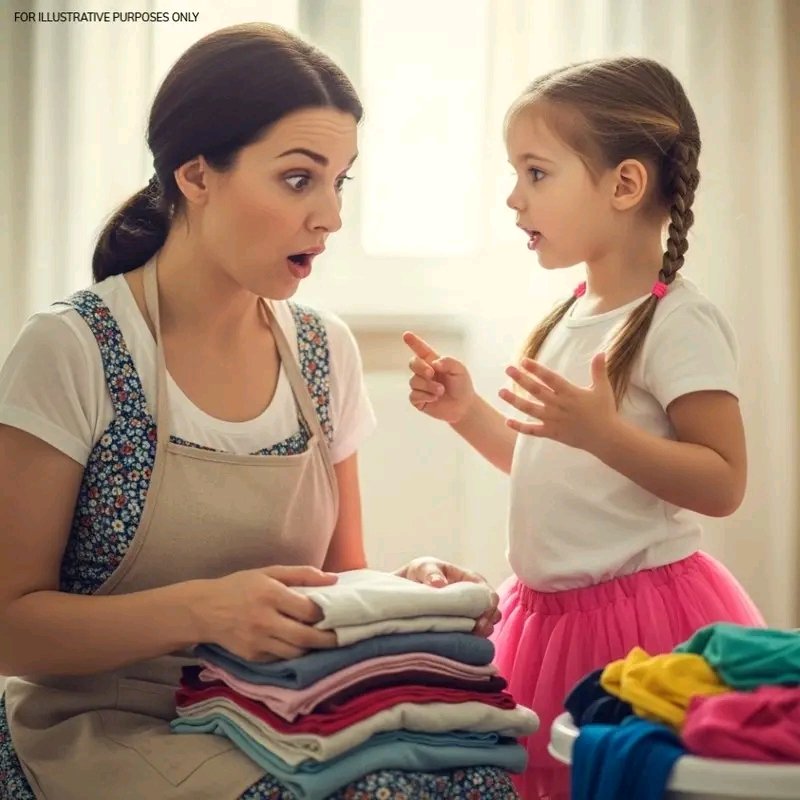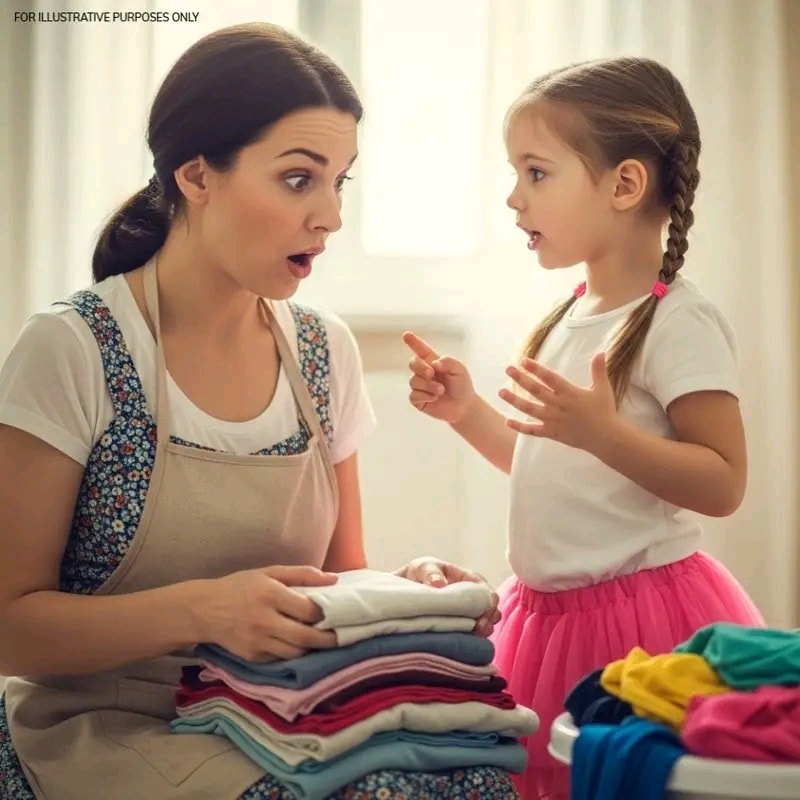We waited years to become parents. After endless paperwork, interviews, and sleepless nights wondering if we were ready, the day finally came — we adopted a beautiful four-year-old girl named Jennifer.

She was tiny for her age, with big brown eyes that carried more stories than any child should ever hold. The first few days were quiet. Understandably, she was cautious, reserved, always staying close to me. Richard, my husband, did everything to make her feel safe — funny voices, bedtime stories, even baking cookies together.
We were finally a family. Or so I thought.
But slowly, something felt… off. Jennifer always seemed nervous around Richard. When he’d walk into a room, she would shrink behind me or suddenly get very quiet. I brushed it off at first — maybe she just needed more time to adjust. Adoption isn’t an easy transition for a child who’s already experienced so much change.
Then, one afternoon while I was folding laundry in our bedroom, Jennifer came over, tugged gently at my sleeve, and whispered something that sent chills down my spine.
“Mommy… don’t trust Daddy.”
I froze. My hands gripped the towel tighter. Her voice wasn’t angry or scared — it was… serious. Almost like she was sharing a secret she’d been holding onto for days.
Kneeling down to her level, I asked softly, “What do you mean, sweetheart?”
She hesitated. Looked down. Then peeked over her shoulder like she was afraid someone might hear.
“Daddy… he’s not who you think. He does bad things when you’re not looking.”
My heart thudded. A hundred thoughts raced through my head. Was this a misunderstanding? A memory from her past? Or… something worse?
Trying not to show panic, I kept my voice calm.
“Honey… can you tell me what you mean by bad things?”
Her little fingers twisted the hem of her shirt. Then she whispered, “When you go outside… or when you’re cooking… Daddy gets really mad. He says mean things. Throws stuff. He scares me.”
I felt sick. Not just because of what she was saying — but because part of me realized… I’d seen glimpses of this before. Small things I ignored. The slammed drawer when he thought no one was watching. The too-tight grip on Jennifer’s arm when she spilled juice. His quick temper, explained away as “stress” or “adjusting to parenthood.”
I wanted to believe this wasn’t true. That my husband couldn’t possibly be someone who frightened our daughter. But a mother knows. Deep down, I knew this wasn’t something Jennifer was making up.
That night, I watched closely. I noticed how Jennifer would shrink into herself when Richard raised his voice — even over something small like dropping a spoon. Her eyes constantly flicked toward me, as if silently asking, “Do you see it now?”
I did.
Over the next few days, I started documenting everything. I set up cameras in the living room and kitchen — places where I could legally monitor our home. And what I saw broke my heart. Richard wasn’t physically hurting her, but the emotional damage was clear. His words were cruel, his tone terrifying. Belittling her for tiny mistakes. Isolating her when I wasn’t around. Whispering threats that would be invisible to anyone who wasn’t paying close attention.
I confronted him. At first, he denied it. Then blamed stress. Blamed me for being “too soft.” But there was no going back.
Within a week, I filed for separation and reported everything to the adoption agency and child services. My first and only priority became protecting Jennifer — the little girl who trusted me enough to say those brave words.
“Mommy… don’t trust Daddy.”
Today, it’s just the two of us. Our house feels safer. Quieter. Filled with laughter again. She no longer flinches when someone raises their voice on the TV. Her smile comes easier now. Her little hand fits perfectly in mine, and every night before bed, I remind her:
“You were so brave. And you’ll always be safe with me.”
And you know what she tells me back?
“I trust you, Mommy.”
And that’s all I need.
